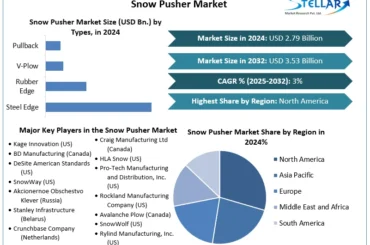With the advent of the digital age, individual investors now have greater accessibility and versatility than ever to buy and sell financial instruments online. Among the most sought-after markets are Forex (foreign exchange) and stocks, both presenting distinctive opportunities as well as risks. But making a decision between them is not merely about the prospects of profits—it’s about choosing the right platform that is suitable for your trading style, objectives, and way of life.
If you’re considering online stock trading versus the temptation of currency markets, this guide explains the major differences so you can make an informed choice about which market—and which trading platform—is ideal for you.
-
Market Hours and Accessibility
Forex Trading Platform:
The Forex market is open 24 hours a day, five days a week. It operates across global time zones, from Sydney to New York, giving traders the flexibility to participate in the market virtually any time of the day. If you have a full-time job or live in a different time zone, this round-the-clock access can be a major advantage.
Online Stock Trading:
Stock markets tend to be associated with particular exchanges that have fixed hours—for instance, the New York Stock Exchange is 9:30 a.m. to 4 p.m. EST. Although there is pre-market and after-hours trading, it tends to have less liquidity and wider spreads.
Verdict: If flexibility and access to markets 24/5 matter to you, then a Forex trading platform might be a better choice.
-
Market Volatility and Liquidity
Forex Trading Platform:
The Forex market is characterized by high liquidity, particularly in major currency pairs such as EUR/USD and USD/JPY. This liquidity translates to narrower spreads, quicker executions, and fewer instances of price manipulation—purely beneficial for scalpers and short-term speculators.
Online Stock Trading
Stocks are also very liquid, especially blue-chip stocks such as Apple or Amazon. But liquidity may differ widely on the basis of the size of the company, news events, or volume of trading. Stocks are also more susceptible to price gaps, particularly following the release of earnings or geopolitical tensions.
Conclusion: For reliability in liquidity as well as reduced transaction costs, Forex has an edge—particularly for active traders through a Forex trading platform.
-
Asset Diversity and Investment Choices
Forex Trading Platform:
Forex deals solely in currency pairs. Although the market is broad—ranging from majors, minors, and exotics—it remains that of currencies. Some Forex brokers also deal in CFDs (Contracts for Difference) on indices, commodities, and crypto, but that’s an addition.
Online Stock Trading
The stock universe is much wider. With online stock trading platforms, one can access thousands of corporations across industries and geographies. Besides individual stocks, one can trade in ETFs, mutual funds, bonds, and options—all under a single roof.
Verdict: For long-term investors looking for diversification, online stock trading provides a greater variety of instruments and asset classes.
-
Leverage and Risk Management
Forex Trading Platform:
Forex is frequently connected with high leverage—often as much as 1:500, depending on the broker and regulation. Although this amplifies potential returns, it greatly enhances risk. New traders tend to find themselves over-leveraged and suffer huge losses.
Online Stock Trading:
Broker stock trading platforms usually provide more cautious leverage (1:2 or 1:4 for margin accounts). Although this curtails high-risk speculation, it is safer for newcomers and encourages a more disciplined investment approach.
Verdict: For a beginner trader, online stock trading can be safer because of the lower leverage exposure involved.
-
Fundamental vs. Technical Analysis
Forex Trading Platform:
Forex markets tend to be driven by macroeconomic drivers—interest rates, central bank actions, geopolitical developments, and global economic indicators. Here, traders prefer technical analysis, charts, and price action systems to decide.
Online Stock Trading
Stock investors tend to follow company fundamentals such as earnings announcements, product releases, and sector trends. Although technical analysis remains prevalent, most long-term investors use fundamental research to decide.
Verdict: Go for online stock trading if you like to read up on companies and industries. Use a Forex trading platform if you like hectic, technically oriented trading.
-
Platform Ease of Use and Tools
Forex Trading Platform
Most Forex brokers, like MetaTrader 4/5 or cTrader, come with sophisticated charting tools, indicators, and automation (expert advisors). These are the most suitable for day traders and scalpers who require precision and speed.
Online Stock Trading:
New online stock trading platforms have strong dashboards, real-time news feeds, earnings calendars, and investment research integration. These tend to support both active traders and long-term investors with mobile and desktop interfaces.
Verdict: Both platforms are extremely advanced nowadays. Your decision should be based on whether you need technical analysis tools (Forex) or firm-specific research and portfolio monitoring (stocks).
-
Costs and Fees
Forex Trading Platform:
Most Forex brokers trade on tight spreads and impose low or no commissions. There can be, however, underground charges such as overnight roll-over fees or wider spreads at times of low liquidity.
Online Stock Trading:
Most online stock trading sites now feature commission-free trades for the major markets, although there can be charges for mutual funds, options, or foreign stocks. Margin accounts can also incur interest.
Verdict: Both markets can prove affordable. Forex could be ideal for high-frequency traders, while stock sites tend to offer superior pricing for long-term traders.
So, Which Platform To Use?
Selecting between an online stock broker and a Forex trading platform largely boils down to your objectives, risk sensitivity, and trading approach:
Opt for Forex if you like active trading, world economics, and chart-based methods.
Maintain stocks if you like constructing a diversified portfolio, investment in corporations, and holding securities in the long term.
Regardless of the market you enter, make sure the platform you choose is regulated, easy to use, and provides the tools you require to be successful.
Final Thoughts
Both Forex and stock trading can be rewarding if done with discipline and an understanding of how they work. By knowing how each market operates—and how the platforms vary—you can make a wiser decision that fits your financial objectives.
Whether you’re trading your first strategy or running a multi-asset portfolio, set aside time to compare both online platforms for trading stocks and Forex trading platforms to determine which ecosystem best facilitates your trading goals.






